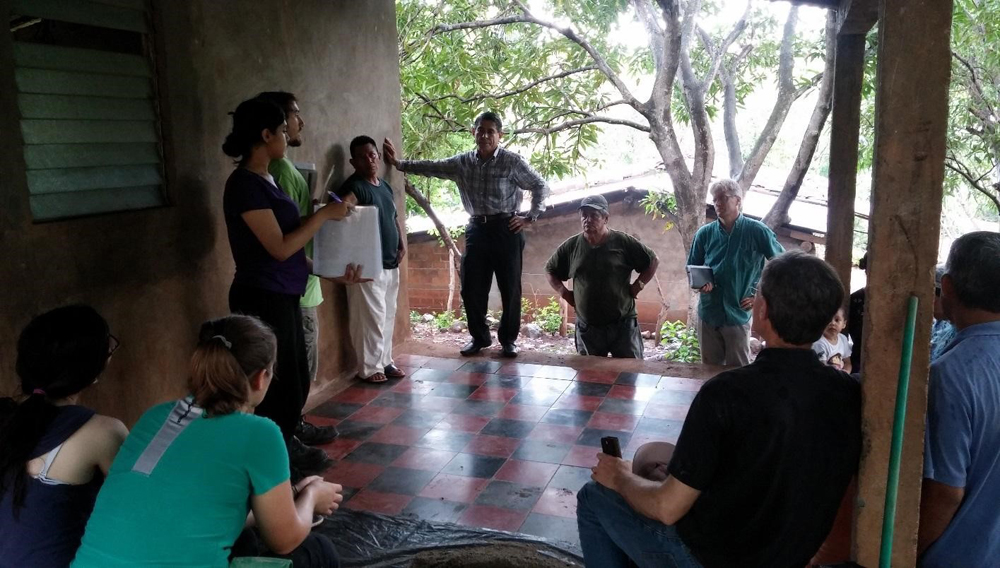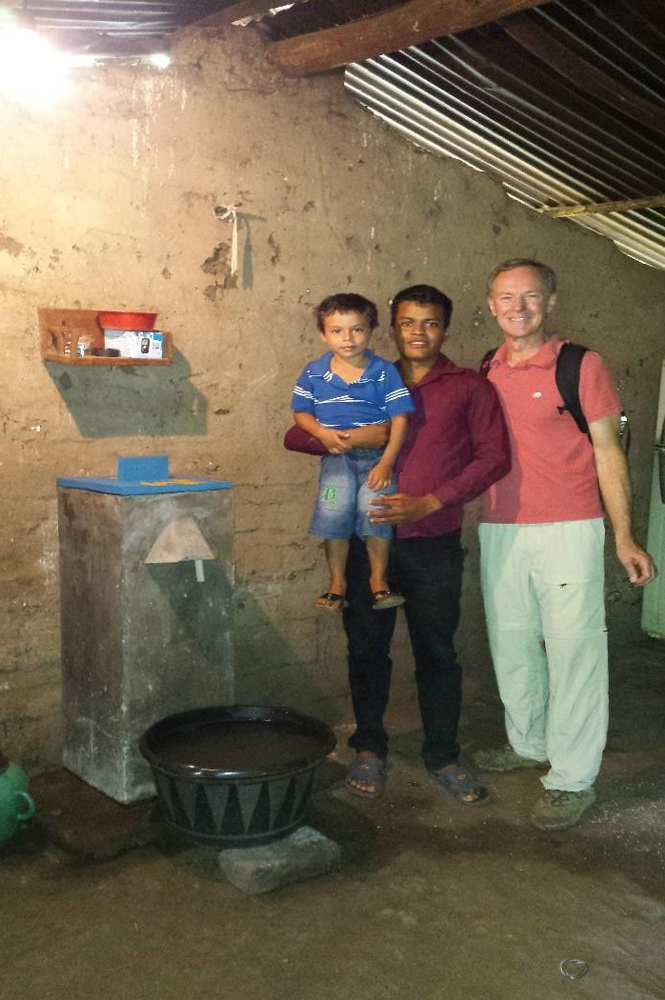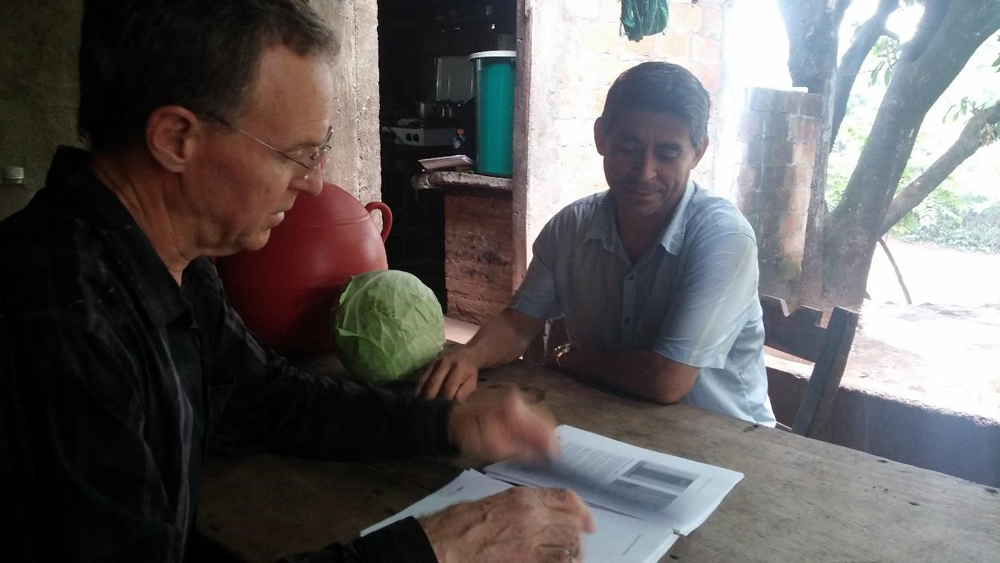Imagine a woman and her child struggling to make long walks everyday to a far away river just to get a sip of water; water that is not even clean and may cause diseases. This is the struggle that the locals in Miramar, El Salvador face everyday, and the problem that Drexel Engineers Without Borders is striving hard to help solve.The organization on campus of Drexel Engineers Without Borders is a chapter that branches off from the national organization of Engineers Without Borders-USA.
From Sept. 12 to 19, EWB-USA DU traveled to Miramar, El Salvador and installed five new biosand filters and evaluated their previously established filters. This December, students and staff from the organization will be traveling back for another implementation trip.

“The Drexel Chapter uses engineering skills and concepts to help our partner communities address their needs and to develop students into leaders who are equipped for challenges they will face throughout their careers,” junior environmental engineering major and EWB-USA DU President Evan Newcomer said. “Typically many projects focus on access to clean drinking water, hygiene and sanitation. These needs are basic to human life and yet are often lacking in underdeveloped parts of the world.”
The organization’s biggest current program is the “Clean Water Project.” This project of EWB-USA DU strives to provide the local community in Miramar with clean fresh water that is easily accessible. It has been an ongoing project since 2007, when the organization of EWB-USA DU was established on campus.
“EWB-USA DU has been involved with the Miramar Clean Water Project since 2007. The community communicated a need for improved water quality and a higher water quantity to a local Peace Corps volunteer and we accepted that challenge,” senior biomedical engineering major and EWB-USA DU Vice-President Ivy Koberlein said. “In addition to working on the project in the country, we are [also] constantly striving to improve the design of the filters and their installation, strengthen community relations, and educate our club members on engineering, global development and intercultural relations.”
It took EWB-USA DU several trials and errors to test which process was most efficient, and also the least costly, in providing the Miramar locals with portable and clean water. The first attempt was a well, followed by a pipeline, before the organization settled on using biosand filters.
“In June 2014, [we] traveled to Miramar to assess for the filters and the implementation of the biosand filters has commenced and been continued from June 2015,” Koberlein said.
Right before classes began in Fall 2015, EWB-USA DU traveled back to Miramar for a week, where they had previously installed some biosand filters.

“The community we were working with was in Miramar, El Salvador. Miramar is a rural refugee village [that was] formed during the Salvadoran Civil War,” pre-junior civil engineering major and EWB-USA DU Marketing Head Donna Zhang said. “This issue in Miramar both limits children’s ability to attend school and causes waterborne diseases for the people in Miramar.”
During this trip, six Drexel students, Koberlein, Zhang, civil engineering senior Adam Bleiman, mechanical engineering senior Anant Jain, environmental engineering sophomore Bavisha Kalyan, and economics major Megha Kumar, along with Richard Cairncross, a Drexel faculty adviser from the Chemical Engineering department, and Russell Turner, a professional engineer from EWB-USA Philadelphia Professional Chapter, worked together with the local government and community of Miramar to install the five biosand filters into the homes of this village.
“Biosand filters are basic water filters,” Zhang explained. “They have an outer structure made of concrete and are filled with different grain sizes of sand and gravel to remove pathogens from drinking water.”
Newcomer further added that “a biological layer also develops on the surface of the top layer of sand, which helps to kill harmful bacteria.”
The filter design used for this project is based off a design by the Center for Affordable Water Sanitation and Treatment.
“The biosand filter contains a diffusion plate for water dispersal, the appropriate layers of sand and gravel, a lid to keep contaminants out, and a water collection tube with a spigot,” Zhang explained.
The process of creating and installing the filters is lengthy, so to make the filter installations quicker once in Miramar, EWB-USA DU enlisted help from a local fabricator to build the concrete casings while they focused on the diffusion plates, filter lids and sand. After the students installed the filter, they ran several tests on them to ensure that they were working properly.
“Typically it takes two to four weeks for the biological layer to develop and the filter to reach maximum effectiveness,” Newcomer added.
Aside from installing five new biosand filters in the Miramar community, EWB-USA DU also conducted water tests that came from filters they had previously installed in their last implementation trip in June 2015.
“The results showed promise and an improved water quality,” Zhang shared.
During this trip, the EWB-USA DU did not just help the Miramar community, but also enjoyed the overall experience of basking in a different culture and being able to work with both fellow EWB-USA DU members and the locals in Miramar.
“Overall, the September 2015 trip was spectacular,” Koberlein said. “We installed five more filters, which was the goal, but also spoke a lot of Spanish, learned about the history of the community, ate too many pupusas, swam in a waterfall, visited the beach and made many friends along the way.”
Getting to work with the Miramar community and government was also a memorable experience for other members who went on the September implementation trip.
“We met our goal of installing five more filters and the community also seemed to appreciate our efforts. We feel like we have been developing better relationships within the village,” Zhang shared. “Additionally, the mayor’s office has been even more cooperative with our efforts by providing us with the necessary supplies.”
This upcoming winter, EWB-USA DU will make another trip to Miramar in order to install more filters to more homes. Their goal is to install biosand filters in all 35 homes in Miramar. Currently, they have a total of ten filters installed.
“We wish to continue building community relations, while also educating the members of the community about the benefits and maintenance of biosand filters,” Zhang said. “It is also important for us to conduct follow-up visits to check on the conditions of the filters that we’ve already installed. There also plans of beginning assessment for another upcoming project where we aim to implement rainwater harvesting within the village.”

Koberlein, who participated in both the June and September 2015 implementation trips, will also be engaged in the December 2015 trip. She said that she had formed a wonderful relationship with the community members in Miramar, and that she wanted to continue working with them. She will be acting as the co-project leader for the trip, which gives her the responsibility of ensuring success on the team’s next trip.
The goal of EWB-USA DU for the December 2015 implementation trip is to install another five biosand filters, train the households on the use of the filters, and construct at least five more filters.
“After this [December] trip, fifteen water filters will be implemented,” Koberlein said. “Additionally, we will [again] have the opportunity to engage in Salvadoran culture and practice our Spanish and communication skills as we get to know the villagers, the local government and the local healthcare providers.”
While EWB-USA DU has installed ten working biosand filters in the homes in Miramar, they will continue to work to complete the next two thirds of the original project goals. They hope to do this within the next four trips.
“Our student-run chapter is actively fundraising to help pay for the completion of the project and have not yet met our target,” Zhang said.
Zhang emphasized that any contribution, regardless of the amount, would be helpful toward helping EWB-Drexel reach their goal of completing the Clean Water Project.

